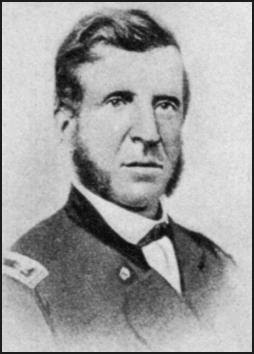Union Army General Joseph Alexander Cooper, farmer, civil servant, and soldier was born November 25th 1823.
Joseph Alexander Cooper was born near Cumberland Falls, Kentucky November 25th 1823. When he was a year old he and his parents moved to Campbell County, Tennessee, where he grew up. Cooper married Mary J Hutson in April 1846. During the Mexican-American War he enlisted as a private in the 4th Tennessee Infantry. When the war was over Cooper returned to his home in Jacksboro, Tennessee where he went back to farming.
At the beginning of the Civil War Cooper was elected a delegate to the 1861 Union Convention at Knoxville, Tennessee. He recruited men around his home county, they were sworn into service as part of the 1st Tennessee Infantry in Whitesburg, Kentucky. After battles at Wild Cat Mountain and Mill Springs, Cooper was promoted to Colonel, and given command of the 6th Tennessee May 1862. He and the 6th Tennessee saw action at Stone River, in the Chattanooga Campaign, and at Chickamauga. As part of the army of Union Major General William Tecumseh Sherman, Cooper was promoted to Brigadier General during the Atlanta Campaign on July 30th 1864. Cooper would be in command of the 2nd Division of the 23rd Corps during the Franklin and Nashville Campaign, for which he would be brevetted Major General. He was mustered out of service January 15th 1866.
Returning to Tennessee Cooper ran unsuccessfully in 1868 for United States Senate. He received an appointment from President Ulysses S Grant to be the IRS collector in the Knoxville district from 1869 to 1879. The Governor of Tennessee asked him help with the putting down the Ku Klux Klan in the state. He moved to Stafford County, Kansas in 1880 and went back to farming. Cooper died there May 20th 1910, and is buried in the Knoxville National Cemetery.





